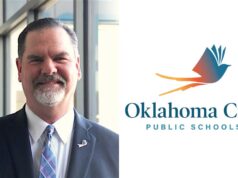
(Correction: This post has been updated as of 11:26 a.m. on Aug. 25 to properly cite Ohio’s State Auditor as David Yost.)
In his recent Last Week Tonight piece, John Oliver knew he might anger both sides of the charter school wars by saying he would not tackle the substance of whether charters, in principle, are a good idea.
Oliver limited his comedy routine to the question of overseeing these publicly funded, privately run institutions that have divided educators and patrons. He only had time to address the funnier scandals in four states, such as the Philadelphia elementary school which co-located with the unlicensed and illegal “Club Damani,” and collected $5 million in public money before the proprietor was busted for embezzlement.
Charters have application forms as long as 400 pages, but many don’t hold themselves as accountable as they do their patrons. Oliver cites mid-year closures without warning throughout the nation, the 14 (of the 119 closed Florida charters) that never made it through their first year, and a chain responsible for 32 of the lowest-performing schools in Ohio. Its leader affirmed, education is “first, last, and always, a business.”
Ohio GOP Gov. John Kasich echoed the party line on the cleansing power of competition, saying schools are “just like a pizza shop.” If you want more pepperoni per slice, you need a second pizza shop.
A convicted charter superintendent justified her crimes by quoting Proverbs, and the need for “vision.” She said her students were inspired by the travels and the trappings she purchased with ill-gotten gains.
Some states try harder to provide accountability, but it’s difficult to oversee schools that are parts of “nonprofit” charter management organizations that bill the specific schools in notoriously opaque ways. One school’s fees came to $1 million, as did its bill of $1 million to the taxpayers for serving 459 students. Only about thirty students actually attended class.
Cyber charters are even more impossible to regulate (as Oklahoma has seen) and they cost $1 billion a year. They might not take attendance but still be allowed to report a 100 percent attendance rate. Students in one cyber charter lost 180 days of math learning during a 180 day school year.
Oliver mocks the Ohio governor, concluding that charters need as much regulation as a pizza shop.
However, I’d leave the last word to Ohio’s State Auditor, David Yost. Yost is supposed to be “the independent, disinterested official who guards the public interest.”
But, he told the Charter School Summit: “We in the charter movement must speak with one voice.”
More about John Oliver on Last Week Tonight




















